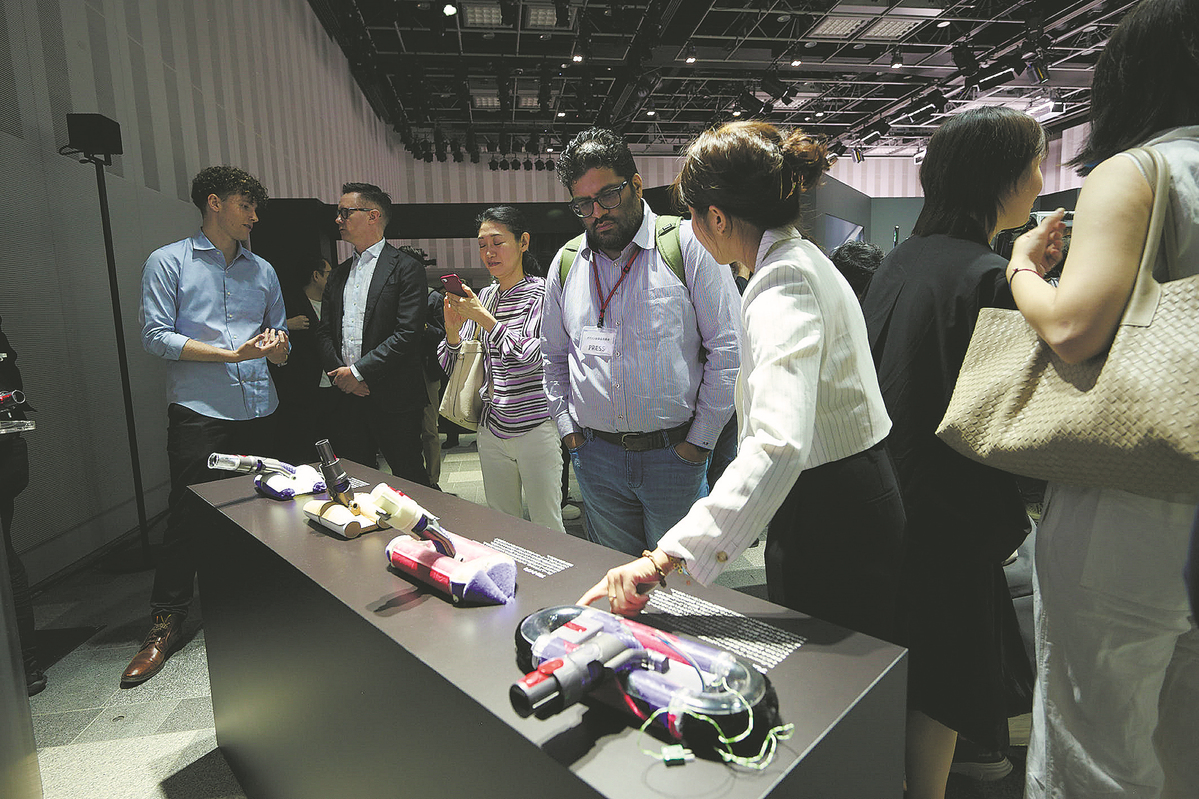Dyson banks on product innovation


Technology company Dyson is sharpening its focus on originality, engineering, and product localization in the dynamic Chinese market to keep an edge over intensifying competition.
Having entered the Chinese market more than a decade ago, the world's second largest economy plays a pivotal role in Dyson's mission.
"Chinese consumers appreciate new technology, miniaturization, and thoughtful design using fewer materials," said founder James Dyson, emphasizing the significance of genuine innovation as key to long-term success.
Among its tailored offerings for China and Asia is the new Dyson PencilVac — the company's slimmest vacuum at just 38 mm in diameter. It boasts Dyson's smallest and fastest Hyperdymium motor, along with a new conical brush bar designed to tackle long hair, a common cleaning challenge in Asian households. This product is set to launch in China later this year.
A lifelong engineering enthusiast, Dyson said that the company, founded in 1993, is motivated not solely by profit but by the pursuit of technological advancement. The founder also highlights the value of failure in the prototyping process. He built 5,127 prototypes for the world's first cyclonic vacuum cleaner Dyson DC01.
"When you have a failure, you wonder why it failed, so it's very interesting," he said. "When you have success, you don't wonder why … you haven't learned anything from it, but you learn from failures."
Dyson over the years has faced increasingly stiff competition in the local market. According to Euromonitor International, the haircare appliances sector in China holds a retail value of 21.15 billion yuan ($2.94 billion) and is projected to reach 23.01 billion yuan by 2027. Dyson currently ranks among the top five brands in the haircare category.
Meanwhile, the vacuum cleaner sector, valued at 37.17 billion yuan in 2024, is anticipated to grow to 42.96 billion yuan by 2027. In this sector, Dyson ranks among the top 10 brands in the Chinese market.
"China is the fastest and most competitive market in the world," said Tom Moody, global president for Dyson Home.
This dynamism, he said, has compelled Dyson to amplify its focus on localization and engineering collaboration within China.
The Dyson purifier big+quiet formaldehyde, which destroys formaldehyde using its catalytic system, was designed specifically for Chinese households.
"Chinese people have very high standards of cleaning," said Moody.
According to Dyson's first Global Wet Cleaning Study, 65 percent of respondents in China prefer wet cleaning machines, compared to the global average of 48 percent. Over 39 percent of respondents reported that sticky substances are the most challenging debris to remove from surfaces in their homes.
Dyson has also strengthened its local sourcing and manufacturing capabilities in China. "The extensive engineering network, particularly in the south of China, is a real strength for the country. That means a lot of things like core components are increasingly sourced locally," said Moody.
Dyson's V12 cordless vacuum, renowned as its best-selling product in China, is manufactured locally. Its production network extends across China, Malaysia, Singapore, and the Philippines, with Singapore serving as the hub for advanced digital motor production.
Moody ranked the company's beauty, floor care, and environmental care business in terms of their contributions to revenue in the Chinese market.
The company sees significant growth potential in the wet cleaning and robotics category, both of which have recorded double-digit growth in recent years, said Moody.
Looking to the future, Dyson expressed optimism about China's strategic role in its global approach.
wangzhuoqiong@chinadaily.com.cn




































